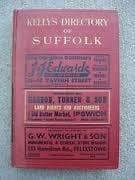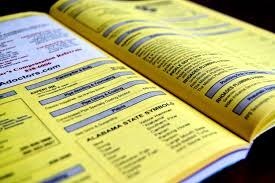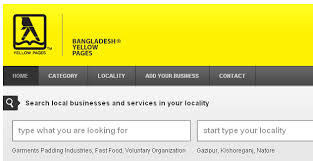Most of the nations of the western world, where free enterprise was in effect had their own versions of business directories. However, at the start these directories listed not only businesses but also notable local residents, gentry etc. along with the better known local enterprises.
Perhaps the first example of a properly compiled and organised such directory in Great Britain was Pigot's Directory, a major British edition, started in eighteen fourteen by James Pigot. Pigot was a pioneer publisher and the first to come up with the idea of printing and publishing a properly organised and structured trade directory. His first editions were printed in eighteen nineteen, and covered trades in Manchester, UK. His main competitors at the time were R & W Dean, whose firm was also publishing similar directories for the same region. However, both firms joined efforts and together published the first Pigot & Dean Manchester and Salford Directory in eighteen fifteen. After the initial success of the first editions, Pigot & Co went onto expand their operation and began compiling and publishing business listings for other cities and regions, including London. The first Pigot & Co business directory for London came out in eighteen twenty three. The titles of Pigot & Co's directories varied and included New Commercial Directory or National Commercial Directory, also the Royal National and Commercial Directory and Topography. Pigot's company ceased to compile and publish such directories after eighteen forty as there was fierce competition in the face of a rival company called Kelly & Co.
Kelly & Co were the editors and publishers of Kelly's Directory, formally known as Kelly's, Post Office and Harrod & Co Directory. The earlier editions of Kelly's Directory also listed local noblemen, landowners and other notable locals, along with various local and regional businesses and companies. In effect, Kelly's Directory was the Victorian era equivalent to Yellow Pages today. Frederic Festus Kelly began his carrier as a postal worker, and made his way through the ranks. His first directory was a listing of post offices in London and surrounding areas. Frederic Kelly founded the Kelly & Co publishing company which became a major force in the industry over the next few decades. Kelly & Co basically muscled out other competing firms from regional to national level in order to establish itself as the main publisher of business directories in the country.

Across the Atlantic, the same business directory concept was also quickly gaining momentum, and in the eighteen eighties the concept of the so called 'yellow pages' took shape in Cheyenne, Wyoming. The yellow pages which became synonymous with the modern day edition came out of pure coincidence. One day, a printer from Cheyenne was engaged in printing a regular phone book, but his press ran out of white paper, so he was forced to feed the machine yellow coloured paper in order to complete the printing process, so in effect he created the first edition of so called Yellow Pages. However the first official Yellow Pages Business Directory was created and printed by Reuben Donnelley in eighteen eight six. Since then the name Yellow Pages has become both a worldwide brand and a household name. In many English and non-English speaking countries, the term 'yellow pages' is actually a noun, in the United States, the term is loosely related to the actual directory brand as the term is not a registered brand name. In Canada, Australia and the United Kingdom, the phrase 'yellow pages' is a registered trade mark belonging to the Yellow Pages Company, and so are the 'walking fingers' logo and any other designs and slogans. In some parts of Europe, the business directory is known as Golden Pages. In Japan, yellow pages are called Town Page.
The yellow pages type of directory, or Yellow Pages (the actual brand directory) follows an established format of listing and publishing of businesses. Each directory is based on a specific geographical region. All businesses listed there are based within that region, and grouped in industries or niches. The editors and publishers profit from selling advertising space underneath the listing pages. In most instances, yellow pages like business directories are free, and delivered to customers across a certain region on an annual basis, free of charge.

Business directories, such as Yellow Pages, Yell and many others have also gone online. In this day and age where online business activity is a huge thing, it is only natural for such directories to evolve to an online form. Working the online versions is quite straight forward and involves using a search engine, specifically built for the directory. Input in the engine is by specific keywords or names provided by users. For instance, a person types in 'reliable man and van services in Ealing' and the directory search engine will return all matching or similar listings for the Ealing, London, UK. Online business directories are big business and there strong competition amongst various brands, or search engines.

Online business listings are becoming 'smarter' and more efficient for users. The overall trend is to move away from generating a basic list of businesses matching the key word or phrase, but to generate a more accurate, narrowed list of entities or service providers which correspond precisely to user needs. This is done by continuously refining and optimising the search engine workings, so that users can use additional words in their search, besides names or trades. Nowadays, there are also specialised online industry directories, which focus on specific types of business or niches. These are either regional, national or international. One example of such international directory is the World Directory of Ship Suppliers.


